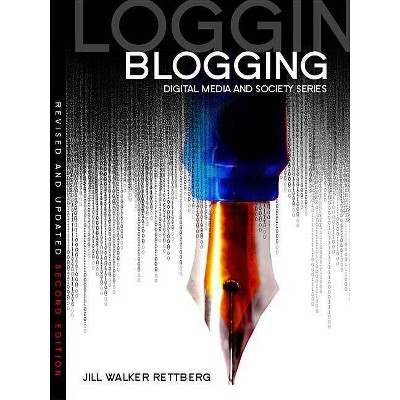Ubiquitous Photography - (Digital Media and Society) by Martin Hand (Paperback)

Similar Products
Products of same category from the store
AllProduct info
<p/><br></br><p><b> About the Book </b></p></br></br>In this timely and lively introduction, the ubiquity of digital photography and imaging is explored in relation to interdisciplinary debates about changes in the production, distribution and consumption of images in global information culture.<p/><br></br><p><b> Book Synopsis </b></p></br></br>The rise of digital photography and imaging has transformed the landscape of visual communication and culture. Events, activities, moments, objects, and people are 'captured' and distributed as images on an unprecedented scale. Many of these are shared publicly; some remain private, others become intellectual property, and some have the potential to shape global events. In this timely introduction, the ubiquity of photography is explored in relation to interdisciplinary debates about changes in the production, distribution, and consumption of images in digital culture. <p><i>Ubiquitous Photography</i> provides a critical examination of the technologies, practices, and cultural significance of digital photography, placing the phenomenon in historical, social, and political-economic context. It examines shifts in image-making, storage, commodification, and interpretation as highly significant processes of digitally mediated communication in an increasingly image-rich culture. It covers debates in social and cultural theory, the history and politics of image-making and manipulation, the current explosion in amateur photography, tagging and sharing via social networking, and citizen journalism. The book engages with key contemporary theoretical issues about memory and mobility, authorship and authenticity, immediacy and preservation, and the increased visibility of ordinary social life.</p> <p>Drawing upon a range of sources and original empirical research, <i>Ubiquitous Photography</i> provides a comprehensive introduction to critical academic debate and concrete developments in the field of digital photography. It is essential reading for students and scholars interested in media and society, visual culture, and digital technology.</p><p/><br></br><p><b> From the Back Cover </b></p></br></br>The rise of digital photography and imaging has transformed the landscape of visual communication and culture. Events, activities, moments, objects and people are 'captured' and distributed as images on an unprecedented scale. Many of these are shared publicly, some remain private, others become intellectual property, and some have the potential to shape global events. In this timely and lively introduction, the ubiquity of photography is explored in relation to interdisciplinary debates about changes in the production, distribution and consumption of images in global information culture.<P>The author examines shifts in image-making, storage, commodification and interpretation as highly significant processes of digitally mediated communication in an increasingly image-rich culture. It covers debates in the history and politics of image making and manipulation, and the current explosion in amateur photography, tagging and sharing via social networking, and citizen-journalism. This book engages with key contemporary theoretical issues such as memory and mobility, authorship and authenticity, immediacy and preservation.<p/><br></br><p><b> Review Quotes </b></p></br></br><br>Hand proves to be a reliable guide in taking us throughwhat remains a rather bewildering landscape.<br /><i><b>European Journal of Communication</b></i><br /><br />Photography is no longer a hobby or a discrete activity, and Martin Hand sets out in his lucid and engaging study just how it has become 'ubiquitous', modifying and making more visual a whole range of existing social practices.<br /><b>Tim Dant, Lancaster University<br /><br /></b>Hand's book sets contemporary photographic practices in the context of information technologies, changing cultural and economic forms, and a media-saturated society, and provides a lucid analysis of how these constitute ubiquitous photography. Its combination of cultural theory, analytic insight, and ethnographic sensibility makes it indispensable reading for anyone seeking to understand contemporary visual culture.<br /><b>Anne Beaulieu, University of Groningen</b><br><p/><br></br><p><b> About the Author </b></p></br></br><b>Martin Hand</b> is Associate Professor in the department of sociology at Queens University, Canada. His previous works include <i>Making Digital Cultures: Access, Interactivity and Authenticity</i>.
Price History
Price Archive shows prices from various stores, lets you see history and find the cheapest. There is no actual sale on the website. For all support, inquiry and suggestion messages communication@pricearchive.us



















